VW ID.4 VS BMW iX1
In the competitive electric SUV market, the BMW iX1 and Volkswagen ID.4 emerge as two strong contenders, each offering a distinct blend of performance and practicality. The iX1 impresses with its sporty handling and premium interior, showcasing BMW's commitment to luxury, while the ID.4 stands out with its spacious cabin and advanced tech features, appealing to families and everyday drivers alike. Ultimately, choosing between the two will depend on whether you prioritize a spirited driving experience or an all-around versatile electric vehicle.
VW ID.4
The VW ID.4 represents Volkswagen's commitment to the electric vehicle market, combining contemporary design with sustainability. Its spacious interior and intuitive technology make it an attractive choice for those seeking comfort and innovation in an eco-friendly package. With a focus on electric performance and practicality, this car is set to be a popular option among environmentally-conscious drivers.
detailsBMW iX1
The BMW iX1 stands out as a versatile addition to the electric vehicle market, seamlessly combining compact dimensions with advanced electric technology. Its sophisticated design elements and premium interiors ensure a luxurious driving experience, while the vehicle's performance focuses on delivering both efficiency and agility. With enhanced connectivity features and an emphasis on sustainability, this model represents a significant step forward in BMW's commitment to a greener future.
detailsIntroduction: The New Electric SUVs Duel
The automotive landscape is rapidly evolving, with electric vehicles taking center stage. In this exciting segment, we compare the BMW iX1 and the Volkswagen ID.4, two robust electric SUVs that promise performance, innovation, and efficiency. Let's dive into the unique features, technical specifications, and what makes each vehicle stand out in this competitive market.
Design and Dimensions: A Fresh Take on SUVs
The BMW iX1 features a striking design, combining elegance with functionality. Measuring 4500 mm in length, 1845 mm in width, and 1616 mm in height, the iX1 offers a refined aesthetic and a spacious interior. It accentuates BMW's commitment to producing premium quality vehicles.
On the other hand, the Volkswagen ID.4 is slightly larger, with dimensions of 4584 mm in length, 1852 mm in width, and anywhere between 1619 mm to 1634 mm in height depending on the variant. This translates into a more rugged appearance and a roomier interior, appealing to families and adventurous drivers alike.
Power and Performance: Electric Excellence
Under the hood, the BMW iX1 offers two power configurations: a 204 HP front-wheel-drive model and a sportier 313 HP all-wheel-drive variant. The vehicle can accelerate from 0 to 100 km/h in just 8.6 seconds for the base version and an impressive 5.6 seconds for the high-powered model. Its 64.8 kWh battery provides an electric range of up to 463 km, making it an attractive option for long-distance driving.
In contrast, the Volkswagen ID.4 shines with multiple power choices, offering outputs from 170 HP to a robust 340 HP. Its acceleration capabilities vary as well, with the top model achieving 0-100 km/h in just 5.4 seconds. With battery sizes ranging from 52 kWh to 77 kWh, the ID.4 boasts an electric range of up to 572 km, making it a formidable contender in the long-distance EV category.
Efficiency and Sustainability: A Greener Choice
Both vehicles emphasize low energy consumption. The BMW iX1 showcases an impressive consumption rate of 15.8 kWh/100 km for its base model and 17.1 kWh/100 km for the all-wheel-drive variant. The ID.4, similarly, features consumption figures ranging from 15.8 to 16.8 kWh/100 km depending on the variant, emphasizing its efficiency.
With CO2 emissions rated at zero grams per kilometer for both models, they align with the trend towards sustainable motoring, making them excellent options for environmentally-conscious consumers.
Interior and Technology: Comfort Meets Innovation
Both the BMW iX1 and VW ID.4 offer a comfortable, tech-savvy interior that caters to modern requirements. The iX1, designed for five passengers, features premium materials and a digital display that echoes BMW's luxury tradition. With a trunk capacity of 490 liters, it offers ample storage for all your needs.
The ID.4, also seating five, comes with a more minimalistic, tech-forward dashboard. Its 543-liter trunk capacity provides additional space for luggage or gear, making it suitable for families and outdoor enthusiasts. Advanced driver-assistance systems, touchscreen interfaces, and connectivity features are highlights in both vehicles, yet the ID.4's software integration may appeal more to tech-savvy buyers.
Final Verdict: Which EV Wins?
Choosing between the BMW iX1 and Volkswagen ID.4 ultimately depends on personal preference and requirements. The iX1 bridges the gap between luxury and performance, making it an attractive option for those who prioritize brand legacy and driving dynamics. In contrast, the ID.4 serves as a versatile family SUV with an impressive range and a more spacious interior, suitable for longer journeys and daily commutes alike.
Whichever you choose, both the BMW iX1 and the VW ID.4 mark a significant step forward in the pursuit of electric mobility, showcasing innovation and performance in the world of sustainable transport.
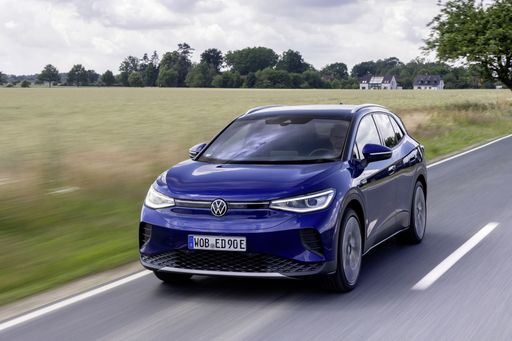 @ Volkswagen
@ Volkswagen
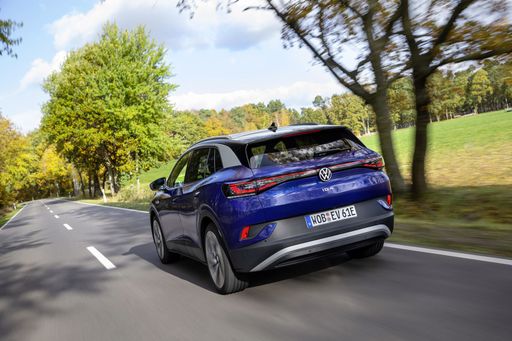 @ Volkswagen
@ Volkswagen
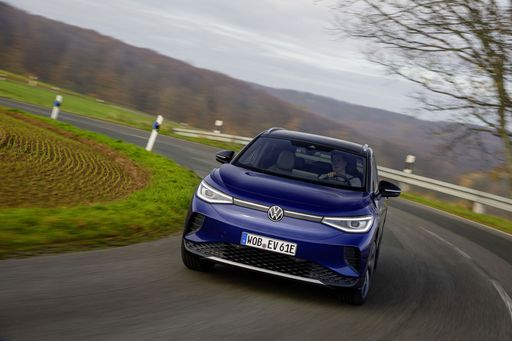 @ Volkswagen
@ Volkswagen
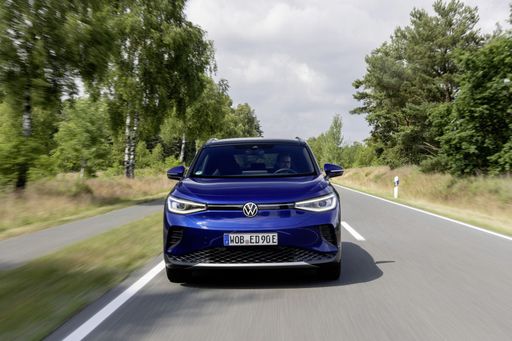 @ Volkswagen
@ Volkswagen
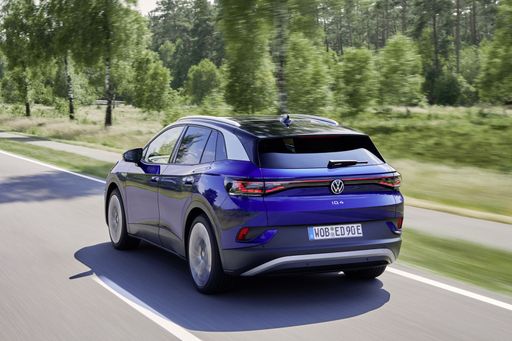 @ Volkswagen
@ Volkswagen
 @ Volkswagen
@ Volkswagen
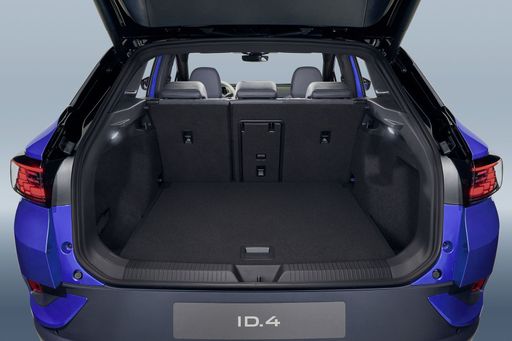 @ Volkswagen
@ Volkswagen
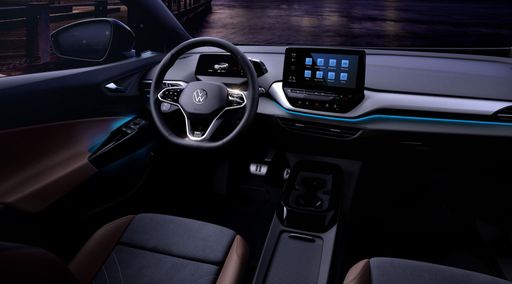 @ Volkswagen
@ Volkswagen
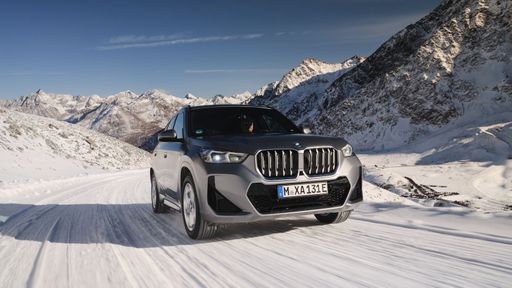 @ press.bmwgroup.com
@ press.bmwgroup.com
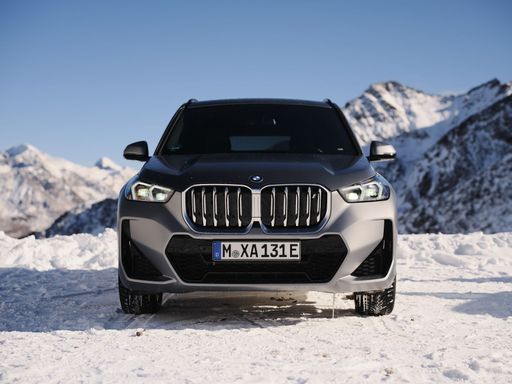 @ press.bmwgroup.com
@ press.bmwgroup.com
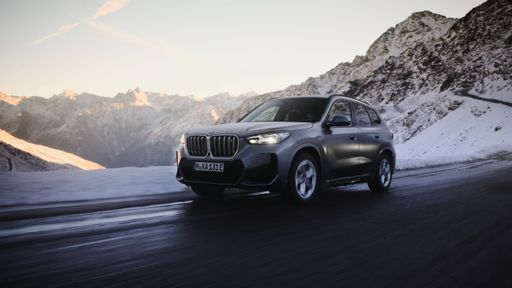 @ press.bmwgroup.com
@ press.bmwgroup.com
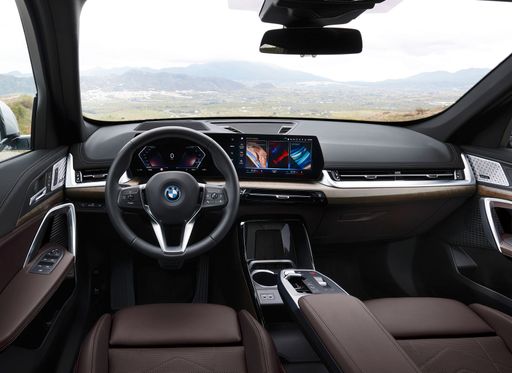 @ press.bmwgroup.com
@ press.bmwgroup.com
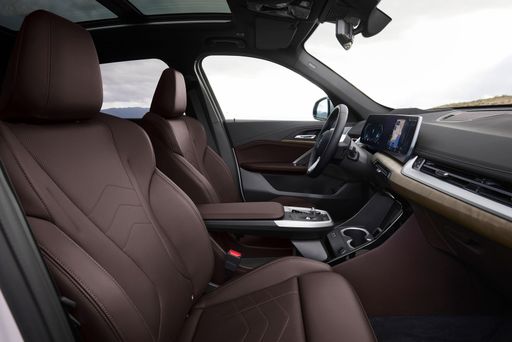 @ press.bmwgroup.com
@ press.bmwgroup.com

|

|
|
|
|
Costs and Consumption |
|
|---|---|
|
Price
about 34600 - 46700
£
|
Price
about 41500 - 54100
£
|
|
Consumption L/100km
-
|
Consumption L/100km
-
|
|
Consumption kWh/100km
15.8 - 16.8
kWh
|
Consumption kWh/100km
15.8 - 17.1
kWh
|
|
Electric Range
357 - 572
km
|
Electric Range
436 - 463
km
|
|
Battery Capacity
52 - 77
kWh
|
Battery Capacity
64.8
kWh
|
|
co2
0
g/km
|
co2
0
g/km
|
|
Fuel tank capacity
-
|
Fuel tank capacity
-
|
Dimensions and Body |
|
|
Body Type
SUV
|
Body Type
SUV
|
|
Seats
5
|
Seats
5
|
|
Doors
5
|
Doors
5
|
|
Curb weight
1979 - 2261
kg
|
Curb weight
1940 - 2085
kg
|
|
Trunk capacity
543
L
|
Trunk capacity
490
L
|
|
Length
4582 - 4584
mm
|
Length
4500
mm
|
|
Width
1852
mm
|
Width
1845
mm
|
|
Height
1619 - 1634
mm
|
Height
1616
mm
|
|
Payload
509 - 541
kg
|
Payload
495
kg
|
Engine and Performance |
|
|
Engine Type
Electric
|
Engine Type
Electric
|
|
Transmission
Automatic
|
Transmission
Automatic
|
|
Transmission Detail
Reduction Gearbox
|
Transmission Detail
Reduction Gearbox
|
|
Drive Type
Rear-Wheel Drive, All-Wheel Drive
|
Drive Type
Front-Wheel Drive, All-Wheel Drive
|
|
Power HP
170 - 340
HP
|
Power HP
204 - 313
HP
|
|
Acceleration 0-100km/h
5.4 - 9
s
|
Acceleration 0-100km/h
5.6 - 8.6
s
|
|
Max Speed
160 - 180
km/h
|
Max Speed
170 - 180
km/h
|
|
Torque
310 - 679
Nm
|
Torque
250 - 494
Nm
|
|
Number of Cylinders
-
|
Number of Cylinders
-
|
|
Power kW
125 - 250
kW
|
Power kW
150 - 230
kW
|
|
Engine capacity
-
|
Engine capacity
-
|
|
Top speed
160 - 180
km/h
|
Top speed
170 - 180
km/h
|
General |
|
|
Model Year
2023 - 2024
|
Model Year
2022 - 2023
|
|
CO2 Efficiency Class
A
|
CO2 Efficiency Class
A
|
|
Brand
VW
|
Brand
BMW
|
VW ID.4
The VW ID.4: A Leap into the Electric Era
As electric vehicles steadily capture the automotive market, the Volkswagen ID.4 stands as a testament to impressive innovation and functionality. Combining eco-friendly technology with the practicality of an SUV, the VW ID.4 is designed to appeal to both environmentally conscious drivers and those seeking versatility in their vehicle choice. In this article, we'll explore the significant technical features and innovations that make the ID.4 a remarkable option in the electric vehicle market.
Powertrain Options: Efficiency Meets Performance
The Volkswagen ID.4 offers a range of powertrain options to suit various driving preferences. With power outputs ranging from 170 to 340 PS and torque figures between 310 and 679 Nm, the ID.4 provides a versatile driving experience. Whether you opt for the responsive rear-wheel drive or the enhanced stability of the all-wheel-drive configuration, each model guarantees smooth and efficient performance.
With an emphasis on efficiency, the ID.4 boasts a consumption rate between 15.8 and 16.8 kWh/100km, making it an economical choice for those mindful of their energy usage. Furthermore, the ID.4 offers a robust driving range, with potential distances reaching up to 572 km, reducing the need for frequent recharging and allowing for longer journeys with peace of mind.
Charging and Battery Technology
Efficiency isn't the only strong suit of the ID.4—the battery technology is equally impressive. With a battery capacity ranging from 52 to 77 kWh, Volkswagen ensures that drivers can match their vehicle choice to their lifestyle needs. Charging is straightforward and adaptable, providing convenience whether at home or on the move.
The ID.4 is designed for compatibility with a variety of charging infrastructure, ensuring rapid charging times and minimal downtime. This thoughtful engineering ensures that drivers spend more time on the road and less time waiting at charging stations.
Design and Practicality: An SUV with a Mission
The VW ID.4 embraces its SUV heritage, offering ample interior space and practicality without compromising on style. With its dimensions ranging from 4582 to 4584 mm in length, 1852 mm in width, and up to 1634 mm in height, the ID.4 ensures a comfortable and spacious environment for up to five passengers.
Additionally, the ID.4 provides a generous boot space of 543 litres, making it ideal for families or those with an active lifestyle requiring extra storage. The careful consideration in design extends to weight efficiency, with the vehicle's own weight between 1979 and 2261 kg helping to enhance its overall drive dynamics and efficiency.
Innovative Features and Technology
Volkswagen has equipped the ID.4 with a suite of advanced technological features designed to enhance both safety and driving enjoyment. These features include intuitive infotainment systems, driver-assistance technologies, and connectivity options tailored to modern expectations.
One standout attribute of the ID.4 is its commitment to sustainability with a CO2 efficiency class of A, demonstrating Volkswagen's dedication to reducing environmental impact without sacrificing performance or functionality.
Conclusion: The Future is Electric
The VW ID.4 is a shining example of how traditional automotive excellence adapts to contemporary demands for sustainability and efficiency. Whether you are an enthusiastic early adopter of electric vehicles or simply someone in search of a reliable and advanced SUV, the ID.4 offers a compelling package designed for the future.
For anyone ready to embrace the electric revolution, the Volkswagen ID.4 represents a significant step forward—a combination of forward-thinking technology, efficient design, and an emphasis on practicality. This makes the ID.4 a worthy consideration for any discerning driver looking to invest in their next vehicle.
BMW iX1
A New Era of Innovation: Meet the BMW iX1
The automotive world has seen a seismic shift towards sustainability and electrification, and BMW has solidified its place in this evolution with the introduction of the BMW iX1. As a fully electric SUV, the iX1 serves as a testament to how luxury, performance, and eco-consciousness can harmoniously blend in the modern automotive landscape.
Exquisite Design Meets Purposeful Engineering
The BMW iX1 is not just an electric vehicle; it's an embodiment of cutting-edge design and technology. With its bold SUV silhouette, the iX1 boasts dimensions of 4500 mm in length, 1845 mm in width, and 1616 mm in height, providing a spacious yet agile presence on the road. Its dynamic aesthetic is complemented by an aerodynamic form that enhances efficiency, offering a drag coefficient that rivals traditional SUV models.
Powertrain and Performance Specifications
Beneath the hood of the BMW iX1 lays an electric motor that signifies the future of automotive engineering. Available variants offer power outputs ranging from 204 to 313 PS (150 to 230 kW). The iX1 comes with either a front-wheel or all-wheel drivetrain, catering to different driving preferences. The xDrive30 variant, in particular, features all-wheel drive, delivering up to 313 PS for those who crave enhanced traction and control.
With a commendable electric consumption of 15.8 to 17.1 kWh per 100 km, the iX1 strikes a fine balance between power and efficiency. Its acceleration stats are equally impressive, with the ability to go from 0-100 km/h in as little as 5.6 seconds. This ensures that while it's eco-friendly, it does not compromise on the exhilaration factor. The vehicle can reach a top speed range between 170 and 180 km/h.
A Journey Without Interruptions: Range and Battery Life
The iX1's battery, boasting a capacity of 64.8 kWh, provides a substantial driving range of 436 to 463 km on a single charge, depending on the variant. This means long road trips are not only feasible but enjoyable, eliminating the range anxiety often associated with electric vehicles.
Comfort and Technological Interior
Inside, the iX1 exemplifies BMW’s commitment to luxury and innovation. It’s a five-seater SUV designed with comfort at its forefront, featuring advanced technological interfaces that enrich the driving experience. The spacious cabin offers 490 litres of boot space, ensuring practicality without sacrificing style.
In terms of monthly costs, owning an iX1 can range between €1,147 and €1,453, considering the zero-emission appeal with a CO2 efficiency class of A.
The Financial Aspect of Sustainability
With a price range from €48,400 to €63,140, the BMW iX1 isn't just a vehicle—it's an investment in sustainable motoring. Factoring in a cost of around 45.9 to 58.1 cents per kilometre, the iX1 offers an economically viable option for the eco-conscious driver.
Conclusion: The Future Is Now
The BMW iX1 stands as a beacon of what the future holds for zero-emission vehicles. With a melding of sustainability, performance, and luxury, it's not just a car, but a glimpse into the next chapter of automotive history.
